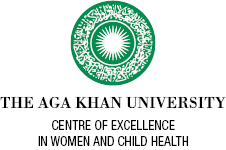Central Asia
 Assessment of Different Implementation Models of Health and Health-Related Sustainable Development Goals (IM-SDG): A Systematic Review, Synthesis of Prior Experience and Targeted Country Consultations
Assessment of Different Implementation Models of Health and Health-Related Sustainable Development Goals (IM-SDG): A Systematic Review, Synthesis of Prior Experience and Targeted Country Consultations
Center of Excellence for Women and Child Health, Aga Khan University, (AKU’s COE-WCH) in collaboration with the Centre for Global Child Health at the Hospital for Sick Children, Toronto (SickKids) and Aga Khan Foundation, Canada (AKFC) is leading this project to augment the implementation of the Sustainable Development Goals (SDGs) and monitoring against global indicators.
At the conclusion of the eight Millennium Development Goals (MDGs) in 2015, all the countries in the world, including all low and middle income countries (LMICs), signed up to the 17 new global SDGs in September 2015. These goals encompass many elements of the previous MDGs but are far more ambitious. While many of the SDG goals are relevant to health, health itself is only one of the 17 goals. The goals include a range of determinants of health which although not directly related to goal 3, are no less important. While there has been considerable progress on stakeholder buy-in for the SDGs, corresponding work on implementation and how health research strategies can potentially help facilitate implementation, has been slow. Recent work in this area has included inputs by think tanks or collaborations to help implement multi-sectoral strategies for reaching SDGs.
The IM-SDG project aims to identify globally implemented sustainable approaches, models, and technologies, and to find the shortcomings in SDGs’ implementation at the country level. The overall objective of IM-SDG project is an assessment of different implementation models of health and health-related SDGs through a systematic review, synthesis of prior experience and relevant research to this process, and targeted country consultations. The project will be done through a global synthesis of existing strategies and concepts for implementing and monitoring health and health-related SDGs, a review of existing experiences from the IDRC Think Tank project outputs, the experience of AKU's Center of Excellence for Women and Child Health (COE-WCH), and a global systematic review of multi-sectoral strategies to address SDGs covering the last five years. This will be followed by consultations across five countries where AKDN and/or IDRC has a strong network and can bring together stakeholders (Government, INGOs, UN, and Civil Society). Specific countries will be selected after an initial gap mapping exercise.
The project builds on the substantial experience of in-country seminars/workshops on the topic area conducted by CoE-AKU in Pakistan, Uganda and Kyrgyzstan plus the large number of Think Tank reports on SDGs and multi-sectoral approaches available through IDRC. Two years into the SDG era, IM-SDG will extend that work with the specificity needed to address the key topics of interlinkages and interconnectedness between various SDGs, establishment of multi-sectoral partnerships and specifically models and tools required for SDG implementation. Country consultation meetings will include key stakeholders, including government, UN agencies, civil society including gender equality organisations, INGOs, private sector and male and female representatives of communities.
The project will deliver evidence-based policy briefs, scientific publishable papers, and practical tools to global and country-based policy makers regarding SDGs implementation.


